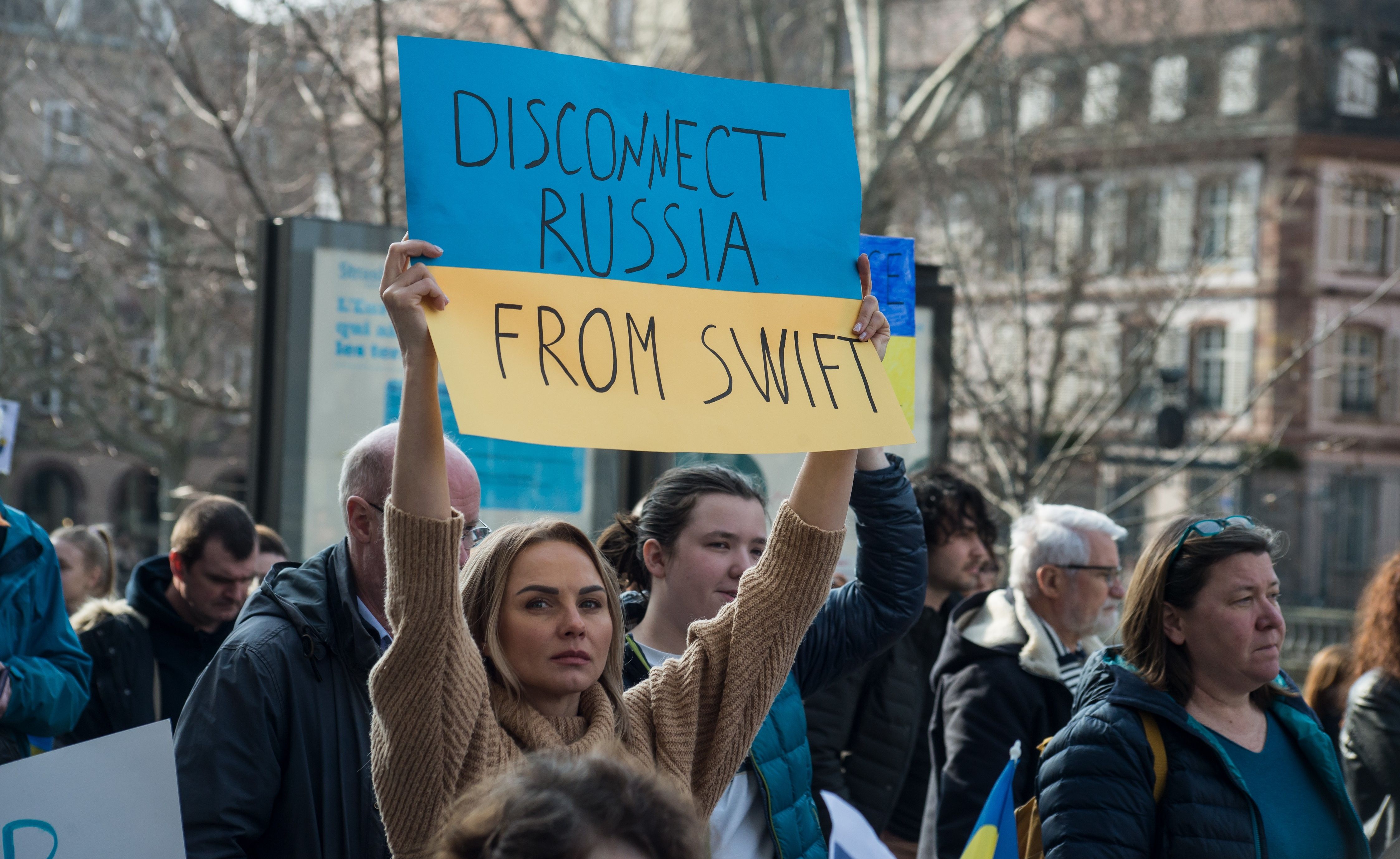A disagreement between America and Europe on reducing low impact Russia sanctions may have big consequences for peace talks on Ukraine. Tariff wars will only complicate matters. President Trump may need to weigh in to break the deadlock.
For the first time since the Ukraine crisis bubbled up in 2014, a split has emerged within the Western alliance on sanctions policy towards Russia. U.S.-brokered peace talks in Saudi Arabia late last month edged Russia and Ukraine closer to reviving a 2022 Black Sea grain deal through a maritime ceasefire. However, what promised to be a helpful, small step forward became hijacked by European and Ukrainian efforts to block minor concessions to Russia.
As part of the proposed revival of a maritime ceasefire, a European spokesperson was quick to shut down suggestions that Russia might receive sanctions relief. At the Paris Summit of the coalition of the willing on March 26, European leaders and President Zelensky weighed in further, calling for no sanctions relief for Russia, repeating the line that more sanctions are key to bringing Putin to the negotiating table.
The U.S. and Europe are no longer in lockstep on sanctions policy. Since 2015, the Ukrainian government has worked hard both to encourage Western powers to impose more sanctions on Russia and to minimize any possibility of sanctions removal as part of peace efforts. Still reeling from the seismic shift in U.S. policy towards Ukraine under President Trump, Europe is siding with Ukraine.
Yet, the argument over sanctions relief appears somewhat of a phoney debate that has the potential to disrupt meaningful steps towards a much-needed peace.
Specifically, this argument over the maritime ceasefire has been triggered by the question of whether to allow some limited access by a major Russian bank to the payment messaging service SWIFT. That would allow importers to make payment for Russian agricultural exports more easily. This is a tiny concession in the context of a Russian sanctions regime that includes more than 20,000 measures against individuals, companies and types of goods.
Agricultural exports, while significant, are small compared to Russia’s oil and gas exports which continue to make up the bulk of Russia’s $433 billion total exports in 2024. The proposed limited easing of sanctions on SWIFT usage would not extend to relief for Russian trade in oil and gas.
But, in any case, the impact of the SWIFT ban is questionable. When war broke out in 2022, it was described as the “nuclear option.” Severing Russia’s ability to transact international trade would have had devastating short-term consequences on the volume of its import revenue, so the argument went.
But that didn’t work.
In 2022 and following the outbreak of war, Russia generated a record-setting $592 billion from exports, and exports since that time have returned to the pre-war trend. There is little evidence that partially excluding Russia from SWIFT has had any substantive impact on Russia export volumes.
The idea that the SWIFT option was nuclear was only vaguely valid in 2014, the year that Western sanctions were first imposed on Russia. In that year, Russia exported more ($497 billion) than it exported in 2024, as the price of Brent crude hovered about $100 per barrel for the first half of the year, compared to around $72 today.
However, European nations vetoed U.S. moves to cut Russia off from SWIFT. They did so precisely because it would have had nuclear consequences for European energy security, at a time when Europe was more dependent, compared to now. It would also have been difficult in 2014 to remove Russia from SWIFT because Russia had a seat on the SWIFT Board, by virtue of the volume of its international financial transactions.
In the eight years of indecision that followed, Russia worked hard to reorient its economy away from overdependence on dollar denominated trading. This helps to explain why its economy has remained resilient since the war started.
The SWIFT ban is not, in any case, a sanction per se, but rather an impediment on the processing of international payments, by cutting access to payment messaging services. Hard currency doesn’t flow through SWIFT. Sanctioning SWIFT has stimulated a race to create alternatives to a legacy system that is now over 50 years old through crypto networks. Russia, China and other countries have been developing their own alternatives too.
As Russia has progressively shifted its exports to Asia, these transactions are increasingly settled in local currencies, including yuan, rupees and rials.
The agreement in Saudi to allow one Russian state bank to access SWIFT for agricultural exports will help smooth the process. But it won’t boost the volume of those exports, which have continued throughout the war.
Of course, Russia will value any easing of access to SWIFT because of the signal it sends of a gradual normalization of relations, in particular with the U.S. That would also build confidence about the possibility of more substantive sanctions relief as a longer-term peace process unfolds.
However, President Putin will also know that this is essentially an argument over a minor sanctions concession with negligible economic benefits for his country. He’ll be aware of the potential for tension to build between President Trump and European leaders, as Zelensky urges Europe to resist any compromise advanced by the White House.
In the context of President Trump’s April 2 announcement on the imposition of tariffs against the European Union and other countries, Putin will watch as relations are further soured. Still eking out small gains on the battlefield most days, Putin can afford to sit back and claim that the Europeans and Ukrainians are blocking progress, and that he’s the reasonable guy.
So, the SWIFT issue risks becoming an unhelpful side-show. Treasury Secretary Bessent has kept the door open for a partial Russian re-entry, although the EU position seems to be getting more entrenched. President Trump may need to engage with European colleagues to clear the blockage, if he is to end the bloodshed in Ukraine.















